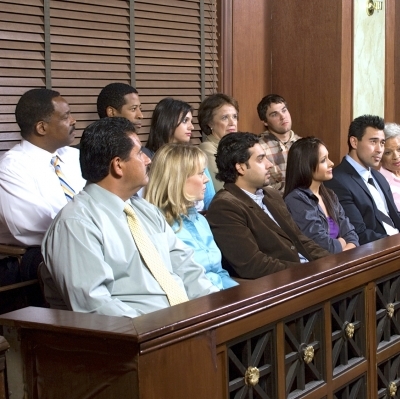Washington Case Law Update: Borrowed Servant Doctrine is Jury Question Where Complete Control is Disputed
Borrowed Servant Doctrine is Jury Question Where Complete Control is Disputed
From the desk of Kyle Riley: Under the “borrowed servant” doctrine, an employer is liable for the allegedly negligent conduct of the employee of another if the employer has complete control over the conduct in question. Read on to learn more about how this doctrine is analyzed.
Claims Pointer: In this case arising out of a workplace injury, the Washington Supreme Court held that whether the borrowed servant doctrine applies is properly a question for the jury where complete control over the borrowed servant’s actions is disputed. The case provides an important reminder that where an employee is loaned to a second employer, liability follows control.
Wilcox v. Basehore, No. 92362-1, Washington Supreme Court (February 9, 2017)
Dean Wilcox (“Wilcox”) sustained severe injuries on the job when he fell through an open catwalk hatch that lacked protective guard chains. Wilcox was a permanent employee of Washington Closure Hanford LLC (“WCH”), a company involved in the cleanup of the United States Department of Energy’s Hanford site in southeastern Washington. Steve Basehore (“Basehore”), a safety planner, was employed by Bartlett Services, Inc. (“Bartlett”), and was involved in preparing the work package for the building where Wilcox fell. A third company, ELR Consulting, Inc., (“ELR”) served as an intermediary between WCH and Bartlett. This arrangement came about because ELR qualified as a service-disabled veteran-owned small business. By contracting with Bartlett through ELR, WCH was able to trigger extra federal payments pursuant to contract.
Wilcox filed suit against Basehore, Bartlett, and ELR for negligence, alleging that Basehore’s negligent development of the work package and safety protocols led to his fall and resulting injuries. Wilcox later voluntarily dismissed Basehore from the lawsuit, and the remaining parties filed cross motions for summary judgment, which were denied. At the close of evidence, ELR brought a motion for judgment as a matter of law, which was granted. The remaining claims against Bartlett proceeded to trial.
At trial, Wilcox opposed jury instructions proposed by Bartlett and ELR that addressed the “borrowed servant doctrine.” Pursuant to these instructions, if the jury found that WCH had exclusive control over Basehore’s allegedly negligent actions, then only WCH would be potentially liable. Because Wilcox was WCH’s employee, he would then be confined to workers’ compensation as his sole remedy. The jury ultimately found that Basehore was under WCH’s exclusive control with respect to his allegedly negligent conduct. Because the jury concluded that Basehore was a “borrowed servant” of WCH, it did not need to consider whether Basehore was negligent, whether the alleged negligence caused Wilcox’s injury, or what damages Wilcox might have incurred. Wilcox appealed. The Court of Appeals affirmed, and Wilcox appealed to the Supreme Court.
On appeal, Wilcox argued, among other things, that the borrowed servant doctrine did not apply because of the contractual arrangement. The Supreme Court framed the issue before it as whether the borrowed servant doctrine applies when the servant in question is loaned through an intermediary.
The borrowed servant doctrine is a legal fiction that expands the concept of respondeat superior. Under respondeat superior, an employer is vicariously liable to third parties for torts committed by an employee who is acting within the scope of employment. An exception exists when an employee’s general employer loans the employee to another, “special” employer. For those activities over which the special employer exercises complete control, the general employer is not liable under the borrowed servant doctrine. However, complete control over all aspects of the loaned worker’s conduct is not required. Rather, liability arises out of those particular transactions over which the special employer has exclusive control. Generally, whether the special employer had exclusive control for the relevant transaction is a question of fact for the jury.
The Court noted that one basic question guides the borrowed servant analysis: Who controls the servant’s conduct? Where, as here, one company’s employee was contracted to a second company that contracted the employee to a third company, the Court saw no reason to reframe its analysis. Thus, in situations of “double borrowing,” the borrowed servant doctrine still applies.
Wilcox argued that WCH did not have exclusive control over Basehore sufficient to satisfy the borrowed servant test. According to Wilcox, because Bartlett admitted it never gave up exclusive control over the core of Basehore’s work—safety—submitting the question to the jury was precluded. However, not only did Bartlett’s president testify that “the site’s plan was the overriding safety plan to be used,” but, as the Court pointed out, exclusive control is task specific, not topic specific. Whether Bartlett or WCH had control over Basehore’s allegedly negligent actions therefore remained a factual question properly submitted to the jury.
The Court also briefly touched on whether ELR was entitled to judgment as a matter of law, concluding that the contract between ELR and WCH did not grant ELR any right of control over Basehore. Thus, the Court affirmed the directed verdict for ELR. The trial court and Court of Appeals decisions were affirmed.
View full opinion at: https://www.courts.wa.gov/opinions/pdf/923621.pdf
Case updates are intended to inform our clients and others about legal matters of current interest. They are not intended as legal advice. Readers should not act upon the information contained in this article without seeking professional counsel.
To email Kyle Riley, please click here.
To view the most recent Oregon Case Law Update: Ninth Circuit Scraps Lawsuit against Rape Accuser under Oregon’s anti-SLAPP Law, please click here.

















